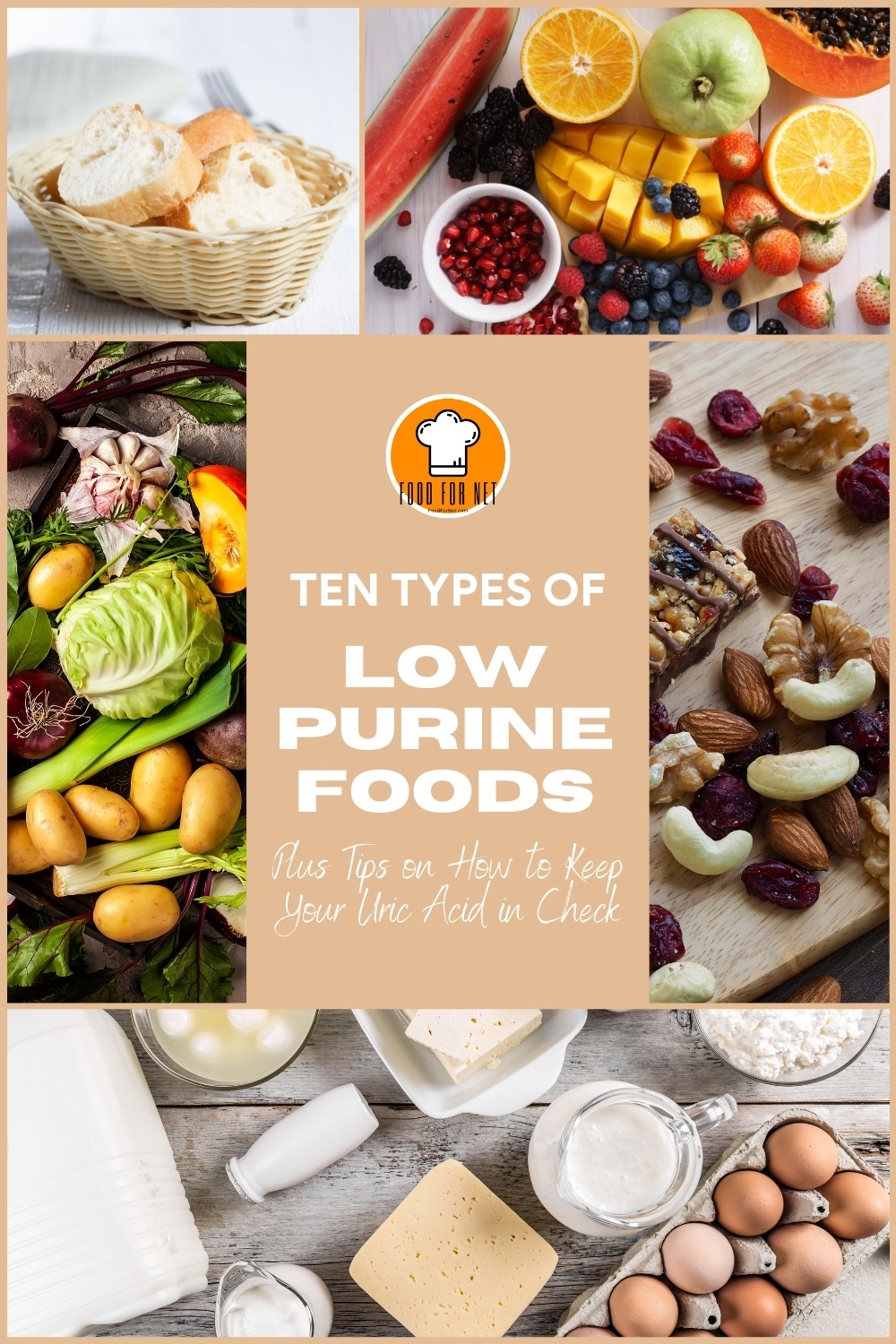
Okay, you don’t necessarily have to follow a rigid low purine diet unless you’ve been told by your doctor to do so. But it’ll surely work to your advantage if you know the low purine foods that you can healthily work into your meal plans. However, if you have a history of gout, kidney stones, or have gone through an organ transplant then you’re a pretty good candidate for a low purine diet.
A low purine diet involves avoiding or limiting the intake of certain foods and beverages that are particularly high in purine and replacing them with healthful alternatives. It is designed to ease symptoms of certain illnesses but it turned out to be really helpful as well in improving general health.
Purines are organic compounds that are found in our bodies and in the foods that we eat. Our body naturally breaks down these purines, in which process uric acid is produced. The uric acid is normally excreted in the urine. Now, when there is too much uric acid in the body or there is a decreased excretion (or a combination of both), it results in hyperuricemia.
Hyperuricemia can lead to gout or can be an indicator for diseases like metabolic syndrome, diabetes mellitus, cardiovascular disease, and chronic renal disease. If you’re already experiencing gout (can be diagnosed with physical examination and lab test), a form of inflammatory arthritis that is very painful – then a low purine diet is really for you. Changing your diet and lifestyle can help prevent future flares – this is when joints are hot, swollen, and painful.
It’s worth noting that the majority of patients with elevated uric acid are asymptomatic and require no long-term therapy. Now, that is not to say that we shouldn’t be mindful of our diet and lifestyle. It still pays to be cautious and watchful of what we eat. Having said that, here’s a list of 10 types of low purine foods that you can work into your diet.
Low Purine Foods
Low-fat dairy products
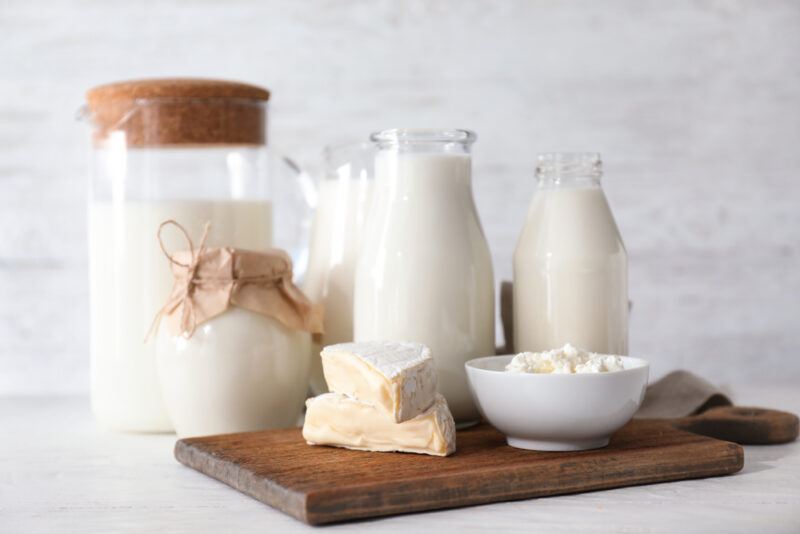
Low-fat dairy products including skim milk or low-fat milk, low-fat cheese, or low-fat yogurt can actually reduce your uric acid levels. It turns out that the protein content of milk promotes the excretion of uric acid in the urine. So yes, do enjoy your milk and yogurt.
When you opt for low-fat dairy products, you’re getting fewer calories, saturated fat, and cholesterol while still getting the same protein, calcium, and most of the vitamins and minerals. So, just keep them low fat and you’re all good.
Lean proteins
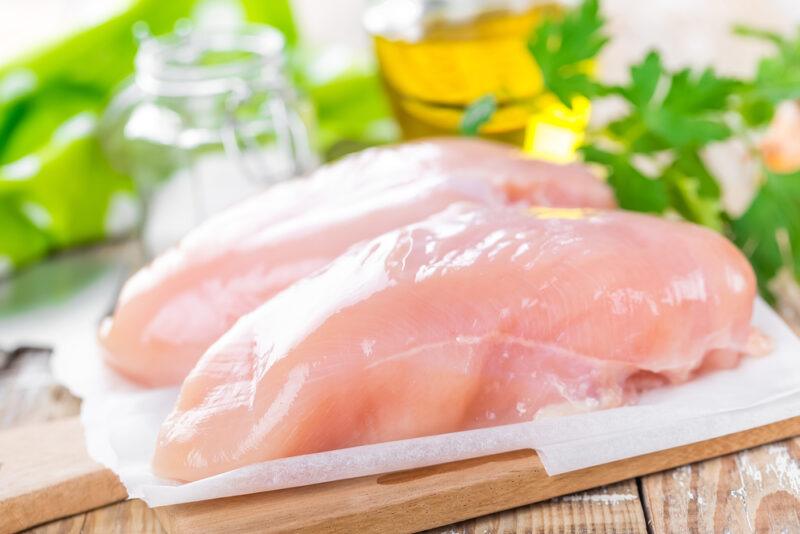
Focus on lean meat and poultry. Remember to limit serving sizes of beef, lamb, veal, and pork and to only consume them occasionally. The overall health benefits of eating fish may outweigh its accompanying risks to people with gout, so a moderate portion of fish is in the clear.
Meats such as liver, kidney, and sweetbreads are the ones you have to really avoid. As for seafood, anchovies, shellfish, tuna, and sardines are absolutely higher in purines than the others, so you really have to watch out for these.
Eggs
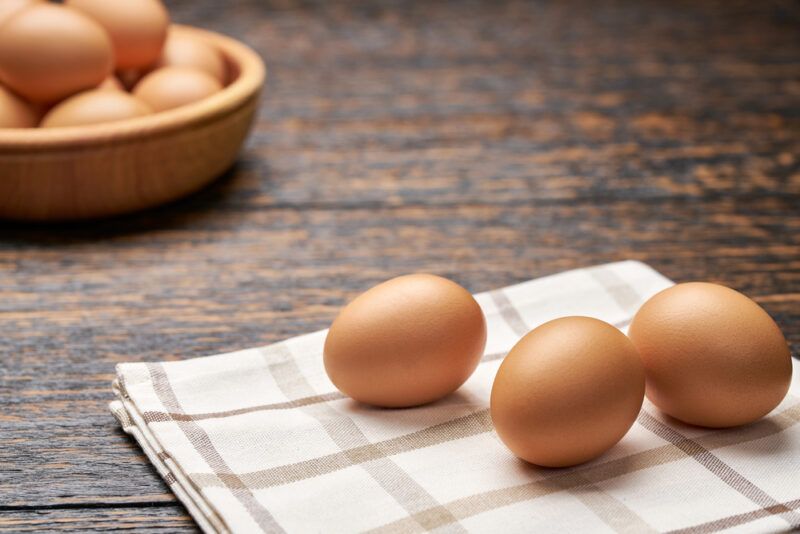
Eggs are low in purine and a good option for protein source alternatives. Again, you don’t have to heavily rely on red meats for protein, there are other foods that you can healthily substitute while keeping a low purine diet.
Aside from protein, eggs also contain potassium, phosphorus, calcium, folate, and vitamins A and D. Eggs can help prevent anemia, strengthen teeth and bones, maintain healthy skin and eyes, keep nerves and blood cells healthy, and boost the immune system.
Enriched breads, pasta, and noodles
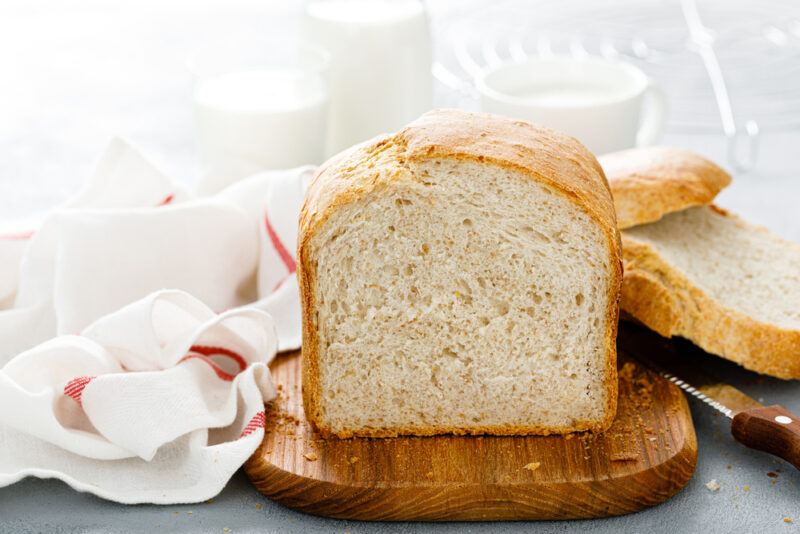
Refined carbohydrates like white bread, pasta, and noodles are low in purine content so they’re in the clear. But do take note though that too much intake of refined carbohydrates can cause a rapid increase in blood sugar levels.
Whole-grain bread and pasta are of course healthier than refined carbs but they contain moderate amounts of purine. You’re still good to eat them though, just limit those to 2 servings per week.
Coffee
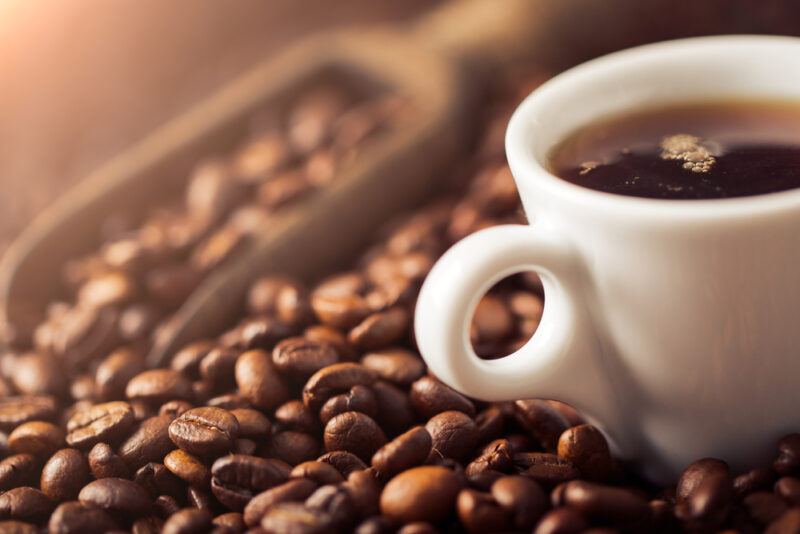
If you’re a coffee drinker then no worries because coffee is still in the clear even if you’re on a low purine diet. It actually lowers uric acid levels by boosting the rate of uric acid excretion in the body.
Coffee contains caffeine and polyphenols which are beneficial compounds that benefit the body. Caffeine inhibits the activity of xanthine oxidase which is an enzyme responsible for metabolizing purines (a source of uric acid). While polyphenol helps reduce the level of insulin in the blood, insulin sensitivity is co-related to uric acid and sodium elimination.
Beans and legumes
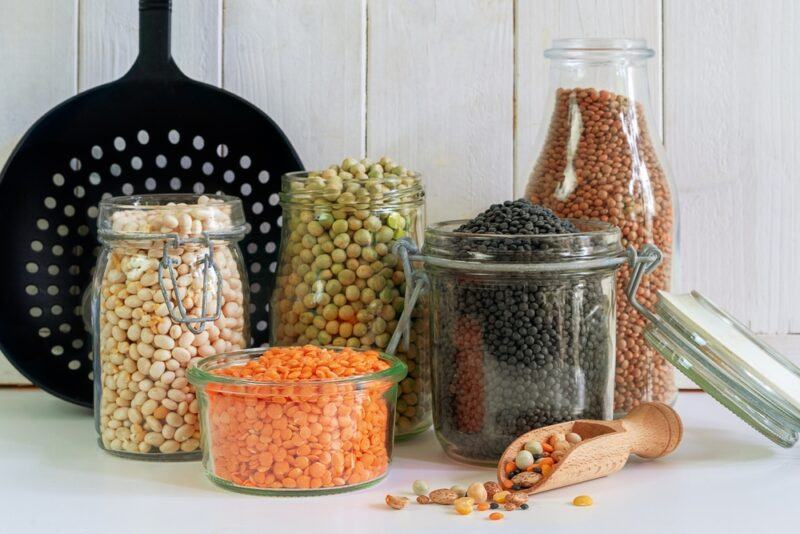
Because they’re excellent sources of plant proteins, beans and legumes are in the clear. These plant-based sources provide you with your protein needs without the saturated fat that is normally found in high-purine, animal-based proteins.
You don’t have to heavily rely on meat consumption to meet your protein needs. You can simply work a menu with beans and legumes and one with meat, and then work them alternately into your weekly meal plans – that way, you won’t feel deprived of meat while ensuring at the same time that your protein needs are being met.
Fruits
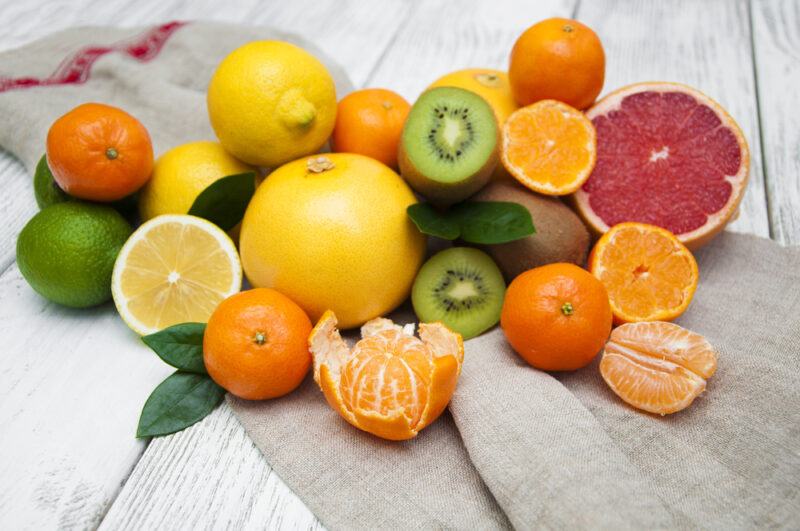
Fruits are in the clear, especially citrus fruits which are loaded with vitamin C that decreases acid levels. But since fructose is linked with increased uric acid levels, it’s best to take fruits high in fructose in moderation.
Fruits such as oranges, grapefruits, pineapples, and strawberries are rich in vitamin C but low in fructose. Berries in general do not only have anti-inflammatory properties which are helpful in reducing high uric acid levels but also helps in preventing uric acid from crystallizing that may later lead to joint pains.
Nuts and seeds
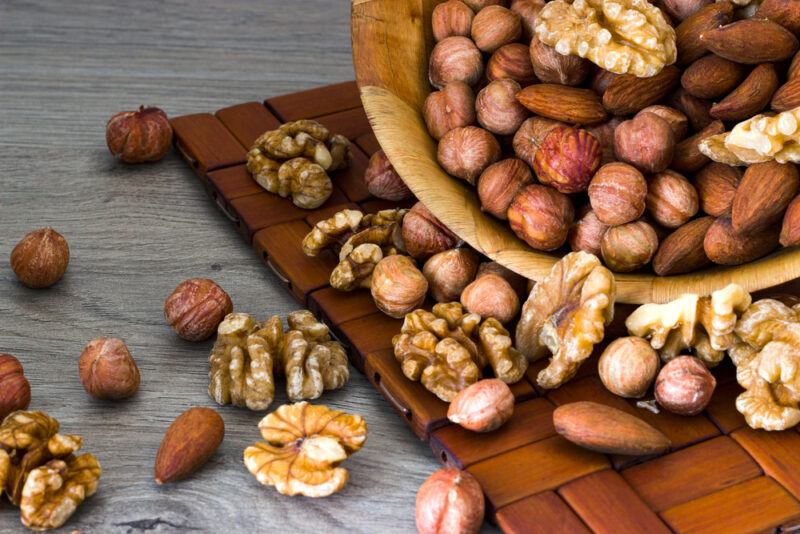
Nuts and seeds up to two tablespoons a day can be a part of a gout-friendly diet. Among the low purine nuts and seeds are almonds, cashews, walnuts, and flaxseeds.
There is a study published in 2015 that says adding almonds to your diet may lower acid levels. Nuts and seeds also contain healthy fats that help in reducing inflammation and pain. Aside of course from the fact that they’re both great sources of vitamins and minerals.
Vegetables
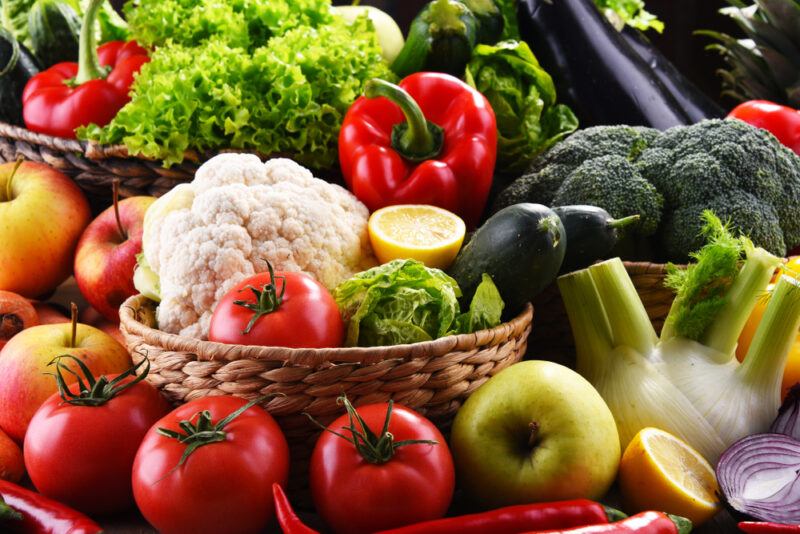
Vegetables are generally low in purine content. They don’t just help reduce uric acid but they also help in keeping uric acid under control. Carrots and cucumbers for instance are packed with antioxidants that help in the production of enzymes that promotes the synthesis of uric acid in the blood.
However, if you’re already diagnosed with a high level of uric acid, you may want to limit mushrooms, spinach, asparagus, dried peas and beans, and cauliflower to only 2 servings per week.
Peanut butter
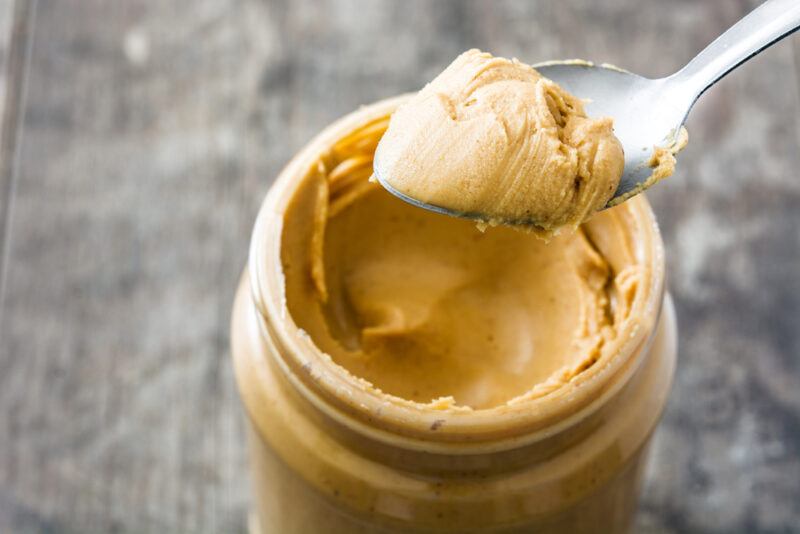
Peanut is actually a legume but just like nuts, peanuts are also low in purine. So, peanut butter is in the clear. It’s actually rich in antioxidants with are very much needed especially by gout sufferers.
Peanut butter aside from its protein content is also high in healthy fats. It’s also fairly rich in vitamins and minerals like vitamins B3, B6, and E, folate, magnesium, copper, and manganese. It also contains decent amounts of vitamin B5, iron, potassium, zinc, and selenium.
How to Keep Your Uric Acid in Check
Aside from limiting purine-rich foods in your diet, these tips can also help you keep your uric acid in check.
Drink lots of water
We’ve been told to always drink our water. This is especially true if you have high uric acid. Drinking 8-16 cups of liquid every day can help your body get rid of the extra uric acid. That amount of water may seem a lot, but it can actually help if you can carry water bottles everywhere you go. This way, you’ll be reminded to drink water whenever you see it and before you knew it, you’ve completed your daily water intake needs!
Reduce stress
Practice mindful techniques like breathing exercises or yoga to ease your stress level. Stress can increase inflammation in the body which can set off uric acid levels. When we are stressed out, we lose pantothenic acid which is important in removing uric acid. So, that’s definitely not good because when the level of pantothenic acid is low, uric acid is high.
Limit or better yet avoid alcohol
Alcoholic drinks particularly beer are high in purine content. If you already have gout, then this is especially true – so, avoid alcohol to avoid gout attacks. When you take alcohol, your kidney excretes alcohol instead of uric acid. So, you’re not doing your body any favor by drinking alcohol, in fact, you’re not only hindering your body to excrete uric acid but you’re actually adding more.
Maintain a healthy weight
Aside from the fact that we should really be maintaining a healthy weight, this is particularly even more important if you’re already experiencing gout. If you’re overweight, you’re putting more stress on your already burdened joints. Have a regular exercise routine in place to help you maintain your healthy weight.
Check your medications and supplements
There are medications and supplements that can cause uric acid buildup. It’s important to discuss this with your doctor so that an alternative solution can be made. Examples of these medications include aspirin, vitamin B3, diuretics, immune-suppressing drugs, and chemotherapy drugs.







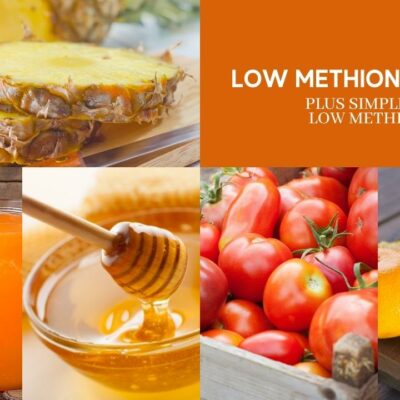
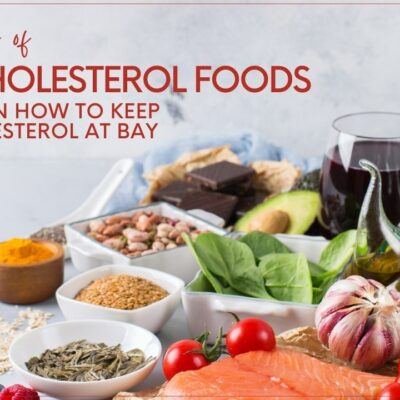
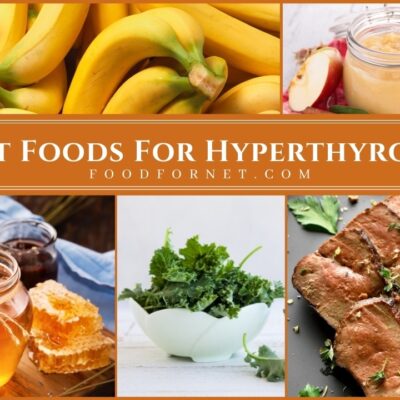




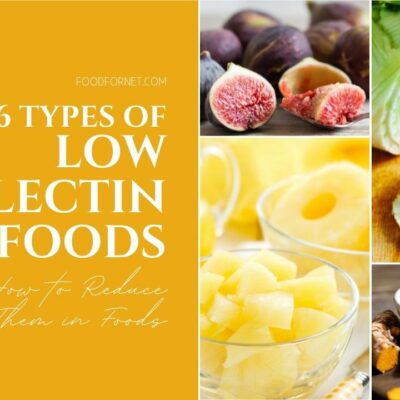


 Are Potatoes Good For You?
Are Potatoes Good For You?
Leave a Reply